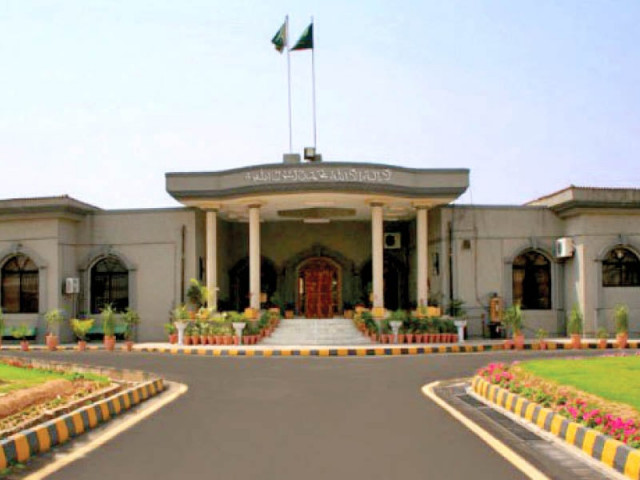2018: A tumultuous year for IHC
Key verdicts delivered while some affected the court itself

During the year, the court saw a change its chief, Justice Anwar Khan Kasi restored and then bid him adieu and welcome his successor Justice Athar Minallah.
The court also saw its senior adjudicator Justice Shaukat Aziz Siddiqui get terminated by the Supreme Judiciary Council.
Elsewhere, it adjudicated on key cases such as those relating to former prime minister Nawaz Sharif, his daughter Maryam Nawaz and Captain Safdar, the ineligibility of former foreign minister Khwaja Asif, the sentencing of former additional session’s judge Raja Khurram Ali Khan for assaulting a minor child maid while additional session’s judge Pervezul Qadir Memon was also removed from his post because of alleged involvement in releasing suspects in the Axact fake degree case.
Key cases
Some of the key cases in which IHC gave its verdict, including those by former justice Siddiqui, directed to make public the report of a committee formed under Leader of the Opposition in the Senate Raja Zafarul Haq to investigate the change of the Khatam-e-Nabuwat affidavit.
IHC has also admitted the plea against former dictator General (retired) Pervez Musharraf, requesting to investigate his reported holding of assets far more than his income.
Moreover, Justice Athar Manullah and Justice Mohsin Akhtar Kiyani, for the first time in the history of the country, imposed fines on top officials of the defense ministry, including its secretary, in two cases of missing persons.
The judges also ordered the defense authorities to pay compensation to the families of missing persons by cutting the salaries of its officers by half.
The high court also approved protective bail for former president Asif Ali Zardari in the money laundering and fake accounts case.
Meanwhile, the IHC also gave a clean chit to Prime Minister Imran Khan in a case challenging his eligibility for the general elections.
The court also ordered against the collection of summer vacation fees by private schools.
The verdicts of the larger bench in the One Constitution Avenue tower case and Sector F-14 and Sector F-15 Housing Schemes were also considered a landmark in how land in the federal capital is allotted.
The IHC also imposed a ban on Pakistan Tehreek-e-Insaf (PTI) MNA and Televangelist Dr Amir Liaquat Hussain while Mutihullah Jan also tendered his apologies after the court issued notices to him.
Case backlog
A tumultuous year came to a close with the high of Justice Athar Minallah taking over as its new chief justice. However, it also came at a time when the court appears to be severely shorthanded with just Justice Miangul Hassan Aurangzeb and Justice Mohsin Akhtar Kiyani making up the roster. The court was already short by a judge and this year it lost two more judges.
There are fears that unless new judges are added to the bench, cases pending in the courts may face delays. AT of end of 2018, there are still over 17,000 cases pending in the IHC.
Data available with Daily Express shows that between January to December 26, 2018, as many as 9,416 new cases were filed in the IHC, registering over 200 cases a day on average during the year.
Despite the roller coaster year the court has had, it managed to adjudicate and finalise more cases in the year when compared to last year. As many as 8,732 pending cases were finalised this year, up 10 per cent from the 7,786 cases finalised in 2017.
Published in The Express Tribune, December 31st, 2018.



















COMMENTS
Comments are moderated and generally will be posted if they are on-topic and not abusive.
For more information, please see our Comments FAQ